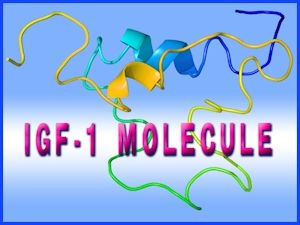Introduction
Hypopituitarism, a condition characterized by the diminished secretion of one or more pituitary hormones, has increasingly been linked to metabolic syndrome, a cluster of conditions that increase the risk of heart disease, stroke, and type 2 diabetes. This association is of particular concern for American males, who face higher risks of developing both conditions. Understanding the interplay between hypopituitarism and metabolic syndrome is crucial for effective management and prevention strategies.
The Prevalence of Hypopituitarism
Hypopituitarism can result from various causes, including tumors, head injuries, or congenital defects. In the United States, it is estimated that hypopituitarism affects approximately 45 to 48 per 100,000 individuals annually. While it can occur at any age, the prevalence tends to increase with age, affecting a significant number of middle-aged and older American males.
Understanding Metabolic Syndrome
Metabolic syndrome is defined by a constellation of risk factors including abdominal obesity, high blood pressure, high blood sugar, high triglyceride levels, and low HDL cholesterol levels. According to the American Heart Association, approximately 34% of American adults meet the criteria for metabolic syndrome, with a higher prevalence among men. The condition significantly increases the risk of cardiovascular diseases, making it a critical public health issue.
The Connection Between Hypopituitarism and Metabolic Syndrome
Recent studies have highlighted a concerning link between hypopituitarism and the development of metabolic syndrome. The pituitary gland plays a pivotal role in regulating various bodily functions, including metabolism, through the secretion of hormones such as growth hormone (GH), adrenocorticotropic hormone (ACTH), and thyroid-stimulating hormone (TSH). Deficiencies in these hormones can lead to metabolic disturbances that contribute to the development of metabolic syndrome.
For instance, GH deficiency, a common manifestation of hypopituitarism, is known to cause increased visceral fat accumulation, insulin resistance, and dyslipidemia, all of which are hallmarks of metabolic syndrome. Similarly, deficiencies in ACTH and TSH can lead to cortisol and thyroid hormone imbalances, further exacerbating metabolic dysregulation.
Clinical Implications and Management
The recognition of the link between hypopituitarism and metabolic syndrome has significant clinical implications for American males. Early detection and management of hypopituitarism can help mitigate the risk of developing metabolic syndrome and its associated complications.
Treatment of hypopituitarism typically involves hormone replacement therapy tailored to the specific deficiencies identified. For example, GH replacement therapy has been shown to improve body composition, insulin sensitivity, and lipid profiles in patients with GH deficiency. Similarly, cortisol and thyroid hormone replacement can help restore metabolic balance.
In addition to hormone replacement, lifestyle modifications such as regular exercise, a balanced diet, and weight management are crucial for managing metabolic syndrome. American males with hypopituitarism should work closely with their healthcare providers to develop a comprehensive management plan that addresses both conditions.
Future Directions and Research
The growing recognition of the link between hypopituitarism and metabolic syndrome underscores the need for further research. Future studies should focus on elucidating the underlying mechanisms of this association and identifying novel therapeutic targets. Additionally, longitudinal studies are needed to assess the long-term impact of hypopituitarism on metabolic health and to develop predictive models for identifying at-risk individuals.
Conclusion
The link between hypopituitarism and metabolic syndrome represents a significant health concern for American males. By understanding the interplay between these conditions, healthcare providers can implement targeted interventions to improve patient outcomes. As research continues to unravel the complexities of this association, it is hoped that new strategies will emerge to better manage and prevent these debilitating conditions.
Contact Us For A Fast And Professional Response

- Unraveling the Link Between Hypopituitarism and Cardiovascular Health in American Males [Last Updated On: March 3rd, 2025] [Originally Added On: March 3rd, 2025]
- Hypopituitarism's Impact on American Men: Symptoms, Challenges, and Coping Strategies [Last Updated On: March 10th, 2025] [Originally Added On: March 10th, 2025]
- Hypopituitarism and Cardiovascular Health: Unveiling the Hidden Risks in American Males [Last Updated On: March 16th, 2025] [Originally Added On: March 16th, 2025]
- Unveiling the Connection: Hypopituitarism and Uterine Fibroids in American Males [Last Updated On: March 16th, 2025] [Originally Added On: March 16th, 2025]
- Understanding Hypopituitarism and Its Impact on Male Reproductive Health [Last Updated On: March 16th, 2025] [Originally Added On: March 16th, 2025]
- Unraveling the Hormonal Link: Hypopituitarism and Breast Cancer in American Males [Last Updated On: March 16th, 2025] [Originally Added On: March 16th, 2025]
- Hypopituitarism's Impact on Cognitive Function in American Males: Diagnosis and Management [Last Updated On: March 17th, 2025] [Originally Added On: March 17th, 2025]
- Hypopituitarism and Autoimmune Disorders: Implications for American Males [Last Updated On: March 18th, 2025] [Originally Added On: March 18th, 2025]
- Hypopituitarism in American Males: Impacts on Sleep and Hormonal Balance [Last Updated On: March 18th, 2025] [Originally Added On: March 18th, 2025]
- Hypopituitarism in American Males: Impact on Skin Health and Management Strategies [Last Updated On: March 18th, 2025] [Originally Added On: March 18th, 2025]
- Hypopituitarism and Obesity in American Males: Hormonal Impacts and Management Strategies [Last Updated On: March 18th, 2025] [Originally Added On: March 18th, 2025]
- Hypopituitarism in American Males: Pituitary Tumors and Surgical Management Insights [Last Updated On: March 18th, 2025] [Originally Added On: March 18th, 2025]
- Hypopituitarism and Anemia in American Males: The Erythropoietin Connection [Last Updated On: March 19th, 2025] [Originally Added On: March 19th, 2025]
- Multidisciplinary Approach to Managing Hypopituitarism in American Males [Last Updated On: March 19th, 2025] [Originally Added On: March 19th, 2025]
- Hypopituitarism in Aging American Males: Symptoms, Impact, and Management Strategies [Last Updated On: March 20th, 2025] [Originally Added On: March 20th, 2025]
- Hypopituitarism in American Males: Cancer Risks and Management Strategies [Last Updated On: March 21st, 2025] [Originally Added On: March 21st, 2025]
- Hypopituitarism and Male Pattern Baldness: Hormonal Links and Psychological Impacts [Last Updated On: March 21st, 2025] [Originally Added On: March 21st, 2025]
- Hypopituitarism's Impact on Joint Health in American Males: Hormones and Management [Last Updated On: March 21st, 2025] [Originally Added On: March 21st, 2025]
- Hypopituitarism and Hearing Loss: Implications for American Males [Last Updated On: March 22nd, 2025] [Originally Added On: March 22nd, 2025]
- Hypopituitarism in American Males: Impacts on Mental Health and Management Strategies [Last Updated On: March 22nd, 2025] [Originally Added On: March 22nd, 2025]
- Hypopituitarism's Impact on Asthma in American Males: Diagnosis and Management Strategies [Last Updated On: March 22nd, 2025] [Originally Added On: March 22nd, 2025]
- Hypopituitarism's Impact on Immune Function in American Males: Challenges and Management [Last Updated On: March 22nd, 2025] [Originally Added On: March 22nd, 2025]
- Hypopituitarism and Allergies: Exploring Links in American Males [Last Updated On: March 22nd, 2025] [Originally Added On: March 22nd, 2025]
- Hypopituitarism and Seizure Disorders: Neurological Links in American Males [Last Updated On: March 23rd, 2025] [Originally Added On: March 23rd, 2025]
- Hypopituitarism's Impact on Kidney Health: Monitoring and Management Strategies [Last Updated On: March 23rd, 2025] [Originally Added On: March 23rd, 2025]
- Hypopituitarism's Impact on Muscle Strength in American Males: Hormonal and Therapeutic Insights [Last Updated On: March 23rd, 2025] [Originally Added On: March 23rd, 2025]
- Hypopituitarism and CFS Overlap: Challenges and Treatment in American Men [Last Updated On: March 24th, 2025] [Originally Added On: March 24th, 2025]
- Hypopituitarism's Impact on Gastrointestinal Health in American Males: Symptoms and Management [Last Updated On: March 24th, 2025] [Originally Added On: March 24th, 2025]
- Hypopituitarism's Impact on Kidney Health: Essential Monitoring for American Males [Last Updated On: March 24th, 2025] [Originally Added On: March 24th, 2025]
- Hypopituitarism's Impact on Liver Health in American Males: Management and Treatment [Last Updated On: March 25th, 2025] [Originally Added On: March 25th, 2025]
- Hypopituitarism in American Males: Impact on Visual Health and Management Strategies [Last Updated On: March 25th, 2025] [Originally Added On: March 25th, 2025]
- Hypopituitarism and Migraines: Hormonal Links in American Males [Last Updated On: March 25th, 2025] [Originally Added On: March 25th, 2025]
- Hypopituitarism and Stroke Risk in American Males: Monitoring and Management Strategies [Last Updated On: March 25th, 2025] [Originally Added On: March 25th, 2025]
- Autoimmune Link Between Hypopituitarism and RA in American Males: Impacts and Management [Last Updated On: March 25th, 2025] [Originally Added On: March 25th, 2025]
- Hypopituitarism's Impact on Pancreatic Health in American Males: Risks and Management [Last Updated On: March 26th, 2025] [Originally Added On: March 26th, 2025]
- Hypopituitarism's Impact on Parkinson's Disease Progression in American Males [Last Updated On: March 26th, 2025] [Originally Added On: March 26th, 2025]
- Hypopituitarism and IBD Link in American Males: Gastrointestinal and Hormonal Insights [Last Updated On: March 26th, 2025] [Originally Added On: March 26th, 2025]
- Hypopituitarism and Gallbladder Disease: Exploring Links in American Men [Last Updated On: March 26th, 2025] [Originally Added On: March 26th, 2025]
- Hypopituitarism and Pituitary Cancer: Early Detection and Management in American Males [Last Updated On: March 26th, 2025] [Originally Added On: March 26th, 2025]
- Hypopituitarism and Fibromyalgia: Shared Symptoms and Management in American Males [Last Updated On: March 27th, 2025] [Originally Added On: March 27th, 2025]
- Exploring the Link Between Hypopituitarism and Alzheimer's in American Males [Last Updated On: March 27th, 2025] [Originally Added On: March 27th, 2025]
- Hypopituitarism and Dyslipidemia: Impacts and Management in American Males [Last Updated On: March 27th, 2025] [Originally Added On: March 27th, 2025]
- Hypopituitarism, Celiac Disease, and Autoimmune Links in American Males: A Comprehensive Overview [Last Updated On: March 27th, 2025] [Originally Added On: March 27th, 2025]
- Hypopituitarism's Impact on Glucose Metabolism in American Males with Diabetes Mellitus [Last Updated On: March 27th, 2025] [Originally Added On: March 27th, 2025]
- Exploring Hypopituitarism and MS Link in American Males: Diagnosis and Treatment Insights [Last Updated On: March 27th, 2025] [Originally Added On: March 27th, 2025]
- Hypopituitarism's Impact on Osteoarthritis in American Males: Hormonal and Joint Health [Last Updated On: March 27th, 2025] [Originally Added On: March 27th, 2025]
- Hypopituitarism's Impact on Uric Acid and Gout in American Males: A Comprehensive Analysis [Last Updated On: March 27th, 2025] [Originally Added On: March 27th, 2025]
- Hypopituitarism and Hypertension: Impact on Blood Pressure in American Males [Last Updated On: March 27th, 2025] [Originally Added On: March 27th, 2025]
- Hypopituitarism in American Males: Cardiovascular Risks and Management Strategies [Last Updated On: March 28th, 2025] [Originally Added On: March 28th, 2025]
- Hypopituitarism and Sjögren's Syndrome: Impact on Exocrine Glands in American Males [Last Updated On: March 28th, 2025] [Originally Added On: March 28th, 2025]
- Hypopituitarism and Adrenal Cancer: Endocrine Links and Management in American Males [Last Updated On: March 28th, 2025] [Originally Added On: March 28th, 2025]
- Hypopituitarism and Lupus Link in American Males: Clinical Insights and Management [Last Updated On: March 28th, 2025] [Originally Added On: March 28th, 2025]
- Hypopituitarism and Breast Cancer Link in American Males: Hormonal Insights [Last Updated On: March 28th, 2025] [Originally Added On: March 28th, 2025]
- Hypopituitarism and Ovarian Cancer Link in American Males: Emerging Research and Implications [Last Updated On: March 28th, 2025] [Originally Added On: March 28th, 2025]
- Hypopituitarism's Impact on Liver Cirrhosis in American Males: Hormonal and Hepatic Insights [Last Updated On: March 29th, 2025] [Originally Added On: March 29th, 2025]
- Hypopituitarism and Prostate Cancer: Understanding the Link and Managing Risks in American Males [Last Updated On: March 29th, 2025] [Originally Added On: March 29th, 2025]
- Hypopituitarism and Thyroid Cancer Link in American Males: Hormonal Imbalances Explored [Last Updated On: March 30th, 2025] [Originally Added On: March 30th, 2025]
- Hypopituitarism and Testicular Cancer: Impacts on Male Fertility and Management Strategies [Last Updated On: April 1st, 2025] [Originally Added On: April 1st, 2025]
- Hormonal Links Between Hypopituitarism and Endometriosis in American Males Explored [Last Updated On: April 4th, 2025] [Originally Added On: April 4th, 2025]
- Hypopituitarism's Gynecological Links: Uterine Fibroids and Male Health Implications [Last Updated On: April 4th, 2025] [Originally Added On: April 4th, 2025]
- Hypopituitarism and PCOS: Impacts, Diagnosis, and Multidisciplinary Management in Women's Health [Last Updated On: April 5th, 2025] [Originally Added On: April 5th, 2025]
- Hypopituitarism's Hormonal Impact and Cervical Cancer Risk in American Males [Last Updated On: April 6th, 2025] [Originally Added On: April 6th, 2025]
- Hypopituitarism and Erectile Dysfunction: Hormonal Links and Management Strategies [Last Updated On: April 7th, 2025] [Originally Added On: April 7th, 2025]
- Hypopituitarism: Impacts on Vaginal Health and Female Reproductive System [Last Updated On: April 8th, 2025] [Originally Added On: April 8th, 2025]
- Hypopituitarism's Impact on Penile Health and Fertility in American Males [Last Updated On: April 8th, 2025] [Originally Added On: April 8th, 2025]
- Hypopituitarism and Premature Ejaculation: Exploring Hormonal Links in American Males [Last Updated On: April 9th, 2025] [Originally Added On: April 9th, 2025]
- Hypopituitarism and Preeclampsia: Hormonal Monitoring Crucial in Pregnancy for American Males [Last Updated On: April 10th, 2025] [Originally Added On: April 10th, 2025]
- Understanding Hypopituitarism and Ectopic Pregnancy: A Guide for Male Partners [Last Updated On: April 10th, 2025] [Originally Added On: April 10th, 2025]
- Hypopituitarism's Impact on Male Fertility and Miscarriage Risk: Hormonal Insights [Last Updated On: April 10th, 2025] [Originally Added On: April 10th, 2025]
- Hypopituitarism's Impact on Male Fertility: Diagnosis, Treatment, and Emotional Support [Last Updated On: April 11th, 2025] [Originally Added On: April 11th, 2025]
- Hypopituitarism's Influence on Gestational Diabetes in American Males: A Metabolic Link [Last Updated On: April 12th, 2025] [Originally Added On: April 12th, 2025]
- Hypopituitarism's Impact on Lactation in American Males: Challenges and Management Strategies [Last Updated On: April 12th, 2025] [Originally Added On: April 12th, 2025]
- Hypopituitarism and Postpartum Depression in American Males: Symptoms, Diagnosis, and Management [Last Updated On: April 14th, 2025] [Originally Added On: April 14th, 2025]

















